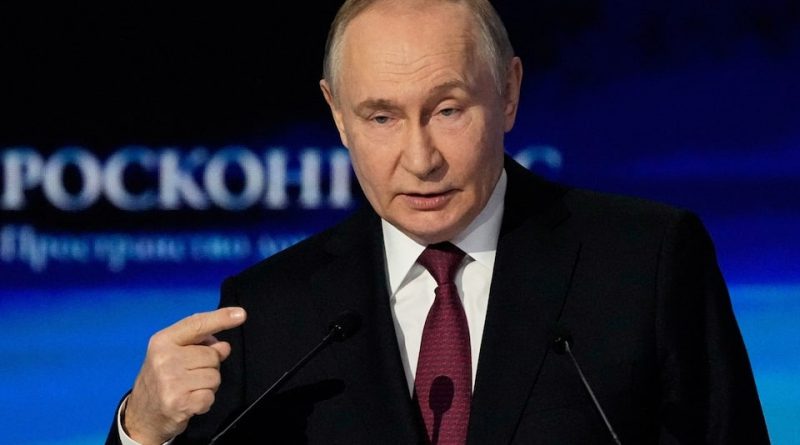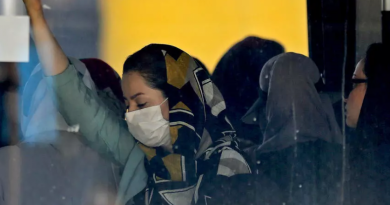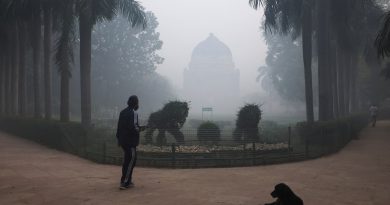Putin Orders Preparations for Possible Resumption of Nuclear Weapons Testing
Moscow – Russian President Vladimir Putin has instructed senior government and military officials to prepare detailed proposals for a potential resumption of nuclear weapons testing, marking a significant development in global security dynamics.
The directive comes amid escalating tensions between Moscow and Washington following statements from U.S. leadership suggesting the United States may restart its own nuclear testing program.
During a high-level meeting with members of Russia’s Security Council in Moscow, Putin emphasized that Russia has consistently honored its commitments under the Comprehensive Nuclear Test Ban Treaty (CTBT), an international agreement banning all nuclear explosions.
However, he stated that if any other nuclear-armed nation, particularly the United States, resumes testing, Russia will take corresponding action to ensure its strategic balance and national security remain uncompromised.
Putin directed key ministries, including the Ministry of Foreign Affairs and the Ministry of Defence, as well as intelligence agencies and other relevant institutions, to gather intelligence, assess international developments, and present unified recommendations.
These recommendations will be reviewed by the Security Council to determine whether Russia should begin preparations for actual nuclear tests at its existing testing sites.
Defence Minister Andrei Belousov supported Putin’s position, asserting that given recent U.S. remarks and strategic moves, it would be “advisable to prepare for full-scale nuclear tests.”
He noted that Russia’s Arctic testing facility in Novaya Zemlya remains fully operational and capable of accommodating nuclear experiments on short notice, should a decision be made.
The announcement signals a potential turning point in global arms control and disarmament efforts. Russia has not conducted any nuclear tests since 1990, when the Soviet Union carried out its last detonation.
After the Soviet Union’s dissolution, Russia inherited the nuclear arsenal but maintained a moratorium on testing as part of its commitment to international stability and the CTBT framework.
If Russia resumes testing, it would mark the first such action by a major nuclear power in over three decades, potentially triggering a new era of global nuclear competition.
Such a move could also undermine long-standing treaties that have sought to limit nuclear weapons development and testing worldwide, including the Non-Proliferation Treaty (NPT) and the CTBT, which, although not formally in force, has been widely observed by most nuclear-armed states.
Putin’s directive also underscores growing mistrust between Russia and the United States, especially amid broader geopolitical disputes and heightened military posturing.
Both countries continue to modernize their nuclear arsenals, and the breakdown of earlier arms control agreements, such as the Intermediate-Range Nuclear Forces Treaty (INF), has deepened global security concerns.
Experts warn that if either Russia or the U.S. restarts nuclear testing, it could prompt other nuclear-armed states, including China, India, and North Korea, to follow suit, further escalating an already fragile international security environment.
Such developments could erode decades of progress in nuclear arms control and non-proliferation efforts.
The Arctic test site at Novaya Zemlya, located in Russia’s far north, was historically used during the Soviet era for hundreds of nuclear explosions.
It remains one of the world’s most advanced and secure nuclear testing facilities, equipped with underground tunnels and monitoring systems designed to contain and analyze nuclear detonations.
Putin’s order reflects a strategic message aimed at demonstrating Russia’s readiness to respond proportionally to any perceived challenge to its deterrence capabilities.
By linking his decision directly to potential U.S. actions, he framed it as a defensive measure rather than an act of aggression.
The global community is expected to watch closely as Russia’s ministries prepare their proposals.
Any movement toward nuclear testing would not only heighten geopolitical tensions but also raise environmental and humanitarian concerns associated with radioactive contamination and long-term ecological damage.



